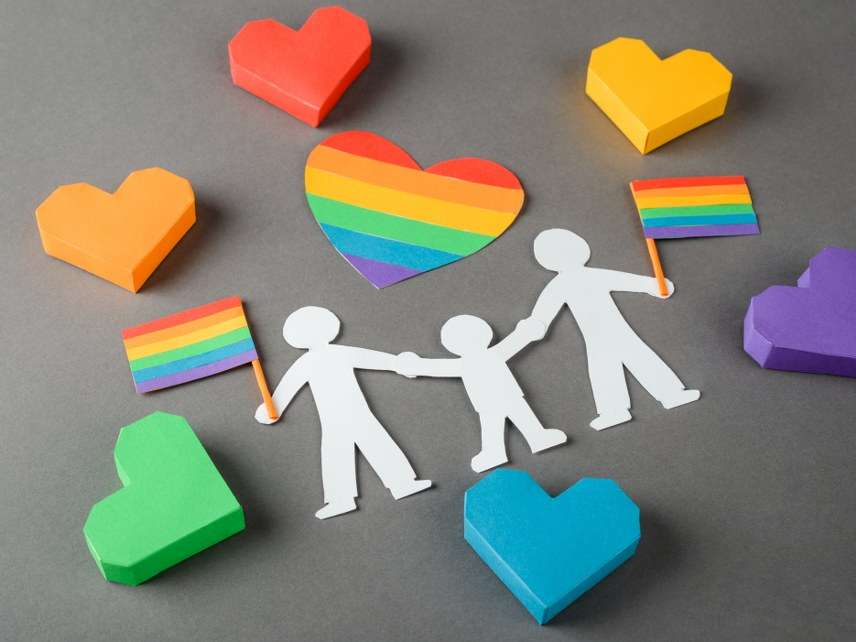Parents, Not Government, Should Decide How To Teach Their Kids About LGBT Issues
A fight in England between educators and Muslims shows the need for more school choice, not control.

"They need to be allowed to be children rather than having to constantly think about equalities and rights."
That's the explanation Fatima Shah has given for temporarily pulling her 10-year-old daughter out of school in Birmingham, England. She is one of apparently hundreds of Muslim parents who object to a newly developed school program to teach children the basics of LGBT issues.
Now some primary schools in England are suspending this program, called No Outsiders, developed by educator Andrew Moffat, in order to discuss the issue with parents who object to Moffat's curriculum. A petition signed by 400 parents calls for it to be dropped from the schools.
Here's more from Shah in The Guardian in January:
Shah claimed her children were becoming "confused" about homosexuality and that the local community's concerns were not being taken on board. She said: "We have nothing against Mr. Moffat – we are as British as they come. We respect the British values … but the problem is, he is not respecting our ethos as a community.
"We don't send our children to school to learn about LGBT. We send them to school to learn maths, science and English."
There are, of course, people who support and have defended the Moffat program, arguing that schools should continue the classes and require all children to attend them. I suspect these op-eds are much kinder and more respectful of the religious objections of Muslims than they would be of Christians.
But I'm not here to participate in the culture wars. Rather, I'd like to point out how poor a job the school system clearly did in engaging with these people when developing the program in the first place; the belief of government education bureaucrats that they are responsible for teaching students and their families to be "better" people; and the inability of many people in the education system to recognize what services parents actually want from them.
Shabana Mahmood, a member of Parliament for parts of the Birmingham community, explained that the parents she had spoken to weren't even against teaching children about LGBT issues. She herself has backed gay rights measures and voted in favor of same-sex marriage recognition. What she heard is that parents are uncomfortable with the early age at which this is all happening. They want these lessons to begin in secondary school, not when their kids are under the age of 10.
The fight is as loud as it is dumb and unnecessary. Learning about LGBT issues, families, and relationships is something that should be handled on the cultural level, not via standardized government lessons. Western nations have become far more accepting of LGBT people over the past 30 years, but it wasn't government that drove the change. Rather, it was a result of passionate activism and cultural engagement with the communities themselves.
Whenever there's a conflict between educators and parents about what children should be learning, there's a clear and obvious solution: school choice. This fight doesn't have to have winners and losers. Parents who want their children to learn about gay families at a younger age and parents who want their children to wait can both get what they want.
But that would require government officials and educators to see parents as customers, and accept that their business must be won, not assumed. And that's not very British at all.


Show Comments (65)